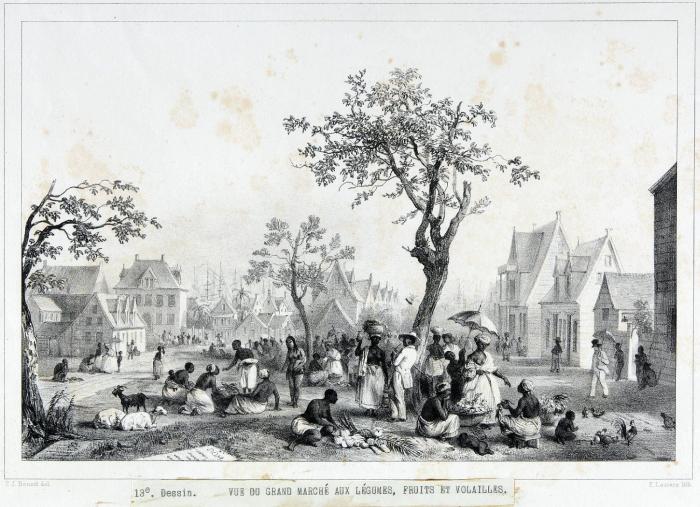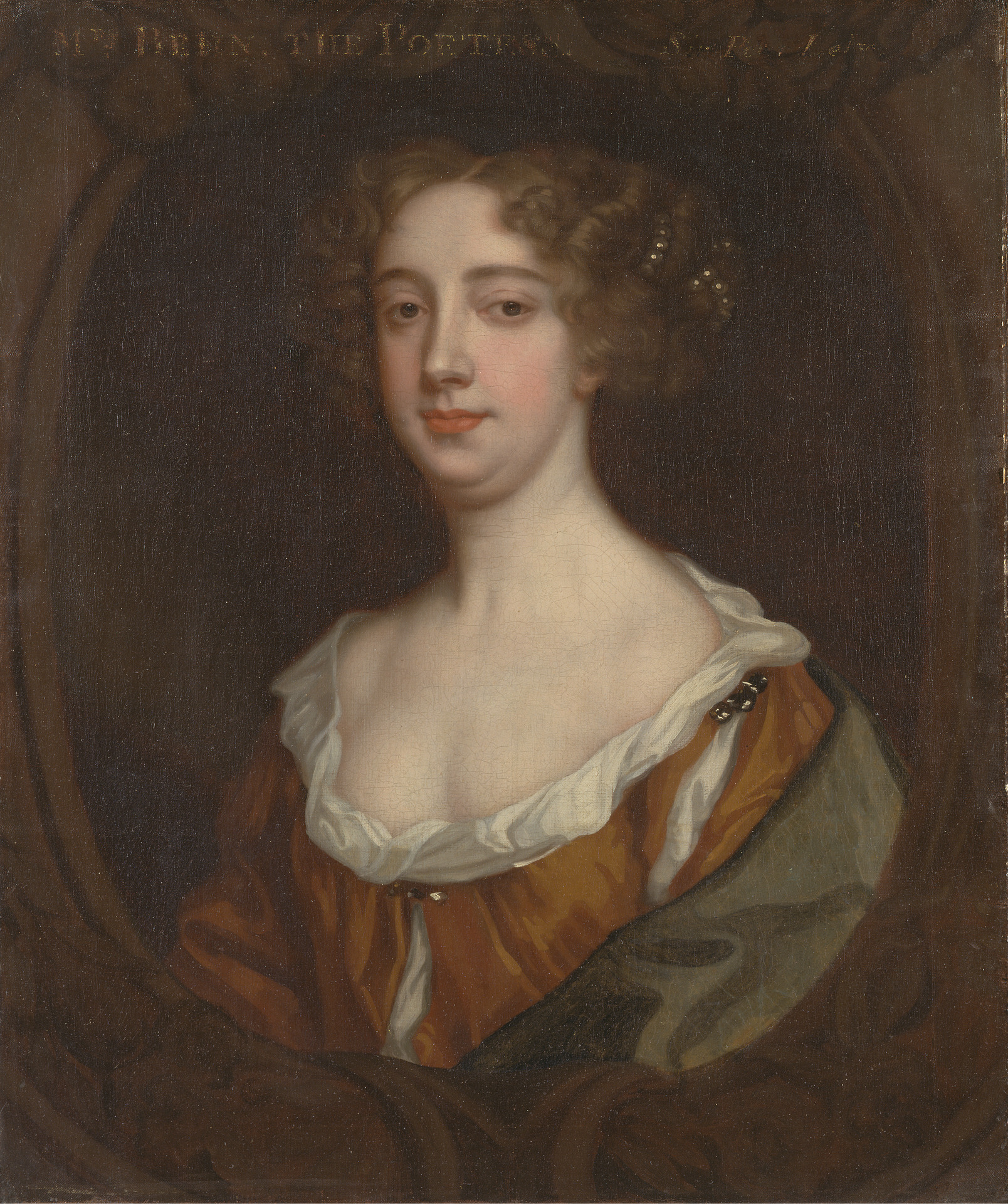|
Herman Daniël Benjamins
Herman Daniël Benjamins (25 February 1850 – 25 January 1933), was a Surinamese educator, editor and writer. He is best known as the founding editor of '' De West-Indische Gids'', and editor of the ''Encyclopaedie van Nederlandsch West-Indië'' (1914-1917). Biography Herman Daniël Benjamins was born in Paramaribo on 25 February 1850. Benjamins went to the Netherlands to study mathematics and physics at the University of Leiden. He received his doctorate on 2 July 1875, and returned to Suriname. In 1877, Benjamins was appointed as the principal of a high school. The school opened on 15 November 1877, but closed again in March 1878 due to lack of students. On 1 June 1878, Benjamins was appointed Inspector of Education, and served in this capacity until 1910. In 1882, the Geneeskundige School, a non-academic medical school, was founded and Benjamins was among the first teachers. During the first nine years, he doubles the number of students and teachers in Suriname. Benjamins p ... [...More Info...] [...Related Items...] OR: [Wikipedia] [Google] [Baidu] |
Paramaribo
Paramaribo ( , , ) is the capital city, capital and largest city of Suriname, located on the banks of the Suriname River in the Paramaribo District. Paramaribo has a population of roughly 241,000 people (2012 census), almost half of Suriname's population. The historic inner city of Paramaribo has been a UNESCO World Heritage Site since 2002. Name The city is named for the Paramaribo tribe living at the mouth of the Suriname River; the name is from Tupi–Guarani languages, Tupi–Guarani ''para'' "large river" + ''maribo'' "inhabitants". History The name Paramaribo is probably a corruption of the name of a native village, spelled Parmurbo in the earliest Dutch sources. This was the location of the first Dutch settlement, a trading post established by Nicolaes Baliestel and Dirck Claeszoon van Sanen in 1613. English and French traders also tried to establish settlements in Suriname, including a French post established in 1644 near present-day Paramaribo. All earlier settle ... [...More Info...] [...Related Items...] OR: [Wikipedia] [Google] [Baidu] |
Surinamese Educators
Surinamese may refer to: * Something of, from, or related to the country of Suriname * Surinamese people, people from Suriname, or of Surinamese descent * Surinamese language (other) Surinamese language may refer to: * Sarnami Hindustani * Surinamese-Javanese * Surinamese Dutch * Sranan Tongo Sranan Tongo (Sranantongo, "Surinamese tongue", Sranan, Surinamese Creole) is an English-based creole language from Suriname, in So ... {{Disambiguation Language and nationality disambiguation pages ... [...More Info...] [...Related Items...] OR: [Wikipedia] [Google] [Baidu] |
People From Paramaribo
The term "the people" refers to the public or common mass of people of a polity. As such it is a concept of human rights law, international law as well as constitutional law, particularly used for claims of popular sovereignty. In contrast, a people is any plurality of persons considered as a whole. Used in politics and law, the term "a people" refers to the collective or community of an ethnic group or nation. Concepts Legal Chapter One, Article One of the Charter of the United Nations states that "peoples" have the right to self-determination. Though the mere status as peoples and the right to self-determination, as for example in the case of Indigenous peoples (''peoples'', as in all groups of indigenous people, not merely all indigenous persons as in ''indigenous people''), does not automatically provide for independent sovereignty and therefore secession. Indeed, judge Ivor Jennings identified the inherent problems in the right of "peoples" to self-determination, as i ... [...More Info...] [...Related Items...] OR: [Wikipedia] [Google] [Baidu] |
Knights Of The Order Of The Netherlands Lion
A knight is a person granted an honorary title of a knighthood by a head of state (including the pope) or representative for service to the monarch, the church, or the country, especially in a military capacity. The concept of a knighthood may have been inspired by the ancient Greek ''hippeis'' (ἱππεῖς) and Roman ''equites''. In the Early Middle Ages in Western Christian Europe, knighthoods were conferred upon mounted warriors. During the High Middle Ages, a knighthood was considered a class of petty nobility. By the Late Middle Ages, the rank had become associated with the ideals of chivalry, a code of conduct for the perfect courtly Christian warrior. Often, a knight was a vassal who served as an elite fighter or a bodyguard for a lord, with payment in the form of land holdings. The lords trusted the knights, who were skilled in battle on horseback. In the Middle Ages, a knighthood was closely linked with horsemanship (and especially the joust) from its origins in ... [...More Info...] [...Related Items...] OR: [Wikipedia] [Google] [Baidu] |
Dutch Magazine Editors
Dutch or Nederlands commonly refers to: * Something of, from, or related to the Netherlands ** Dutch people as an ethnic group () ** Dutch nationality law, history and regulations of Dutch citizenship () ** Dutch language () * In specific terms, it reflects the Kingdom of the Netherlands ** Dutch Caribbean ** Netherlands Antilles Dutch may also refer to: Places * Dutch, West Virginia, a community in the United States * Pennsylvania Dutch Country People Ethnic groups * Pennsylvania Dutch, a group of early German immigrants to Pennsylvania Specific people * Dutch (nickname), a list of people * Johnny Dutch (born 1989), American hurdler and field athlete * Dutch Schultz (1902–1935), American mobster born Arthur Simon Flegenheimer * Dutch Mantel, ring name of American retired professional wrestler Wayne Maurice Keown (born 1949) * Dutch Savage, ring name of professional wrestler and promoter Frank Stewart (1935–2013) Arts, entertainment, and media Fictional characters * ... [...More Info...] [...Related Items...] OR: [Wikipedia] [Google] [Baidu] |
1933 Deaths
Events January * January 11 – Australian aviator Sir Charles Kingsford Smith makes the first commercial flight between Australia and New Zealand. * January 17 – The United States Congress votes in favour of Philippines independence, against the wishes of U.S. President Herbert Hoover. * January 28 – "Pakistan Declaration": Choudhry Rahmat Ali publishes (in Cambridge, UK) a pamphlet entitled ''Now or Never; Are We to Live or Perish Forever?'', in which he calls for the creation of a Muslim state in northwest India that he calls "Pakistan, Pakstan"; this influences the Pakistan Movement. * January 30 ** Nazi Party leader Adolf Hitler is appointed Chancellor of Germany (German Reich), Chancellor of Germany by President of Germany Paul von Hindenburg. ** Édouard Daladier forms a government in France in succession to Joseph Paul-Boncour. He is succeeded on October 26 by Albert Sarraut and on November 26 by Camille Chautemps. February * February 1 – Adolf Hitle ... [...More Info...] [...Related Items...] OR: [Wikipedia] [Google] [Baidu] |
1850 Births
Events January–March * January 29 – Henry Clay introduces the Compromise of 1850 to the United States Congress. * January 31 – The University of Rochester is founded in Rochester, New York. * January – Sacramento floods. * February 28 – The University of Utah opens in Salt Lake City. * March 5 – The Britannia Bridge opens over the Menai Strait in Wales. * March 7 – United States Senator Daniel Webster gives his "Seventh of March" speech, in which he endorses the Compromise of 1850, in order to prevent a possible civil war. * March 16 – Nathaniel Hawthorne's historical novel '' The Scarlet Letter'' is published in Boston, Massachusetts. * March 19 – American Express is founded by Henry Wells and William Fargo. * March 31 – The paddle steamer , bound from Cork to London, is wrecked in the English Channel with the loss of all 250 on board. April–June * April 4 – Los Angeles is incorp ... [...More Info...] [...Related Items...] OR: [Wikipedia] [Google] [Baidu] |
Oroonoko
''Oroonoko: or, the Royal Slave'' is a work of prose fiction by Aphra Behn (1640–1689), first published in 1688 by William Canning and reprinted later that year in the compilation ''Three Histories by Mrs. A. Behn''. The eponymous hero is an African prince from Coramantien who is tricked into slavery and sold to European colonists in Surinam where he meets the narrator. Behn's text is a first-person account of Oroonoko's life, love, and rebellion. Behn, often cited as the first known professional female writer, was a successful playwright, poet, translator and essayist. She began writing prose fiction in the 1680s, probably in response to the consolidation of theatres that led to a reduced need for new plays. Published less than a year before she died, ''Oroonoko'' is sometimes described as one of the first novels in English. Interest in ''Oroonoko'' has increased since the 1970s, with critics arguing that Behn is the foremother of British female writers, and that ''Oro ... [...More Info...] [...Related Items...] OR: [Wikipedia] [Google] [Baidu] |
Aphra Behn
Aphra Behn (; baptism, bapt. 14 December 1640 – 16 April 1689) was an English playwright, poet, prose writer and translator from the Restoration (England), Restoration era. As one of the first English women to earn her living by her writing, she broke cultural barriers and served as a literary role model for later generations of women authors. Rising from obscurity, she came to the notice of Charles II of England, Charles II, who employed her as a spy in Antwerp. Upon her return to London and a probable brief stay in debtors' prison, she began writing for the stage. She belonged to a coterie of poets and famous libertines such as John Wilmot, Lord Rochester. Behn wrote under the pastoral pseudonym Astraea (mythology), Astrea. During the turbulent political times of the Exclusion Crisis, she wrote an epilogue and prologue that brought her legal trouble; she thereafter devoted most of her writing to prose genres and translations. A staunch supporter of the Stuart line, Beh ... [...More Info...] [...Related Items...] OR: [Wikipedia] [Google] [Baidu] |
British Guiana
British Guiana was a British colony, part of the mainland British West Indies. It was located on the northern coast of South America. Since 1966 it has been known as the independent nation of Guyana. The first known Europeans to encounter Guiana were Sir Walter Raleigh, an English explorer, and his crew. Raleigh published a book entitled ''The Discovery of Guiana'', but this mainly relates to the Guayana natural region, Guayana region of Venezuela. The Dutch Empire, Dutch were the first Europeans to settle there, starting in the early 17th century. They founded the colonies of Essequibo (colony), Essequibo and Berbice, adding Demerara in the mid-18th century. In 1796, Great Britain took over these three colonies during hostilities with the French, who had occupied the Netherlands. Britain returned control of the territory to the Batavian Republic in 1802, but captured the colonies a year later during the Napoleonic Wars. The Netherlands officially ceded the colonies to the Uni ... [...More Info...] [...Related Items...] OR: [Wikipedia] [Google] [Baidu] |
Tigri Area
The Tigri Area () or New River Triangle is a forested area in the East Berbice-Corentyne region of Guyana that has been disputed by Suriname since the 19th century. In Suriname, it is seen as an integral part of the Coeroeni Resort located in the Sipaliwini District. The area involves the area between the New River (renamed as the Upper Corentyne River by Suriname) and the Corentyne River which leads to the Kutari River at the border of Brazil. The Corentyne River was accepted as the natural border between these two countries until 1871 when Charles Barrington Brown discovered the New River. The dispute rests on the interpretation of the natural border, specifically whether the Kutari River or the New River is the source of the Corentyne River, despite both being tributaries. In 1969, three years after its independence, the Guyana Defence Force (GDF) seized full control of the disputed region when Suriname was still a constituent state of the Kingdom of the Netherlands ... [...More Info...] [...Related Items...] OR: [Wikipedia] [Google] [Baidu] |






